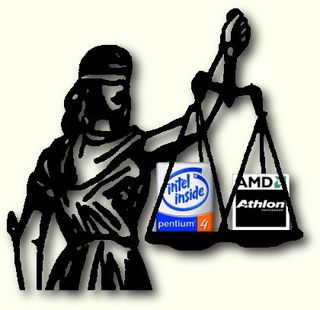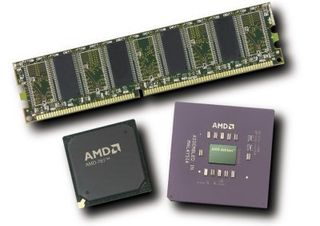The Tom's Hardware Guide Power Box
The Processor Of The Power Box

The first choice I had to make was of course the processor that I would use in the box. Right now there are two CPUs that come to mind, AMD's Athlon processor and Intel's Pentium 4. Those two are rivaling for the best performing PC-processor on the market and so I had to choose one of them.

My choice fell onto the Athlon processor for several important reasons. First of all it was clear that the CPU of the Power Box had to run at some super-high clock rate, higher than what you can realize in commercial systems. In other words, the processor of the Power Box had to be 'overclocked'. Intel's Pentium 4 can be overclocked, but the procedure is rather limited. Due to the fact that Pentium 4's clock multiplier is fixed, you need to increase the processor bus clock beyond the specified 100 MHz, which leads to out-of-spec clocks of the Ram-bus, the AGP as well as the PCI-bus. While a reasonably overclocked AGP is just about acceptable, a beyond-spec PCI-bus is paving the road for disaster. Once the PCI-clock goes beyond 39 MHz, the majority of sound, network or SCSI PCI-devices will either run very unreliable or not operate at all.
AMD's Athlon, however, allows you to actually change its clock multiplier as long as you fulfill two conditions. You need a motherboard that supports the adjustment of the multiplier and you have to close the famous L1-bridges on the processor package. Once you have done that, you can overclock the Athlon processor without jeopardizing the reliability of other devices of your PC. The AGP, the memory as well as the PCI-bus remain running 100% within spec and you don't need to worry about problems with your network, SCSI or sound card.
The second reason why I chose Athlon is its performance in today's applications.
The fastest Athlon that is available right now (1200 MHz) is already beating the fastest available Pentium 4 in the majority of benchmarks. Pentium 4 requires software that is specifically optimized to challenge Athlon, while the only widely used application in which Pentium 4 is able to beat Athlon without SSE2-optimizations is Id's Quake 3 Arena.
In summary you could say that Athlon is better suited for overclocking and at beyond-spec clock rates it is able to beat anything that is thrown against it.
Stay on the Cutting Edge
Join the experts who read Tom's Hardware for the inside track on enthusiast PC tech news — and have for over 25 years. We'll send breaking news and in-depth reviews of CPUs, GPUs, AI, maker hardware and more straight to your inbox.
Most Popular

